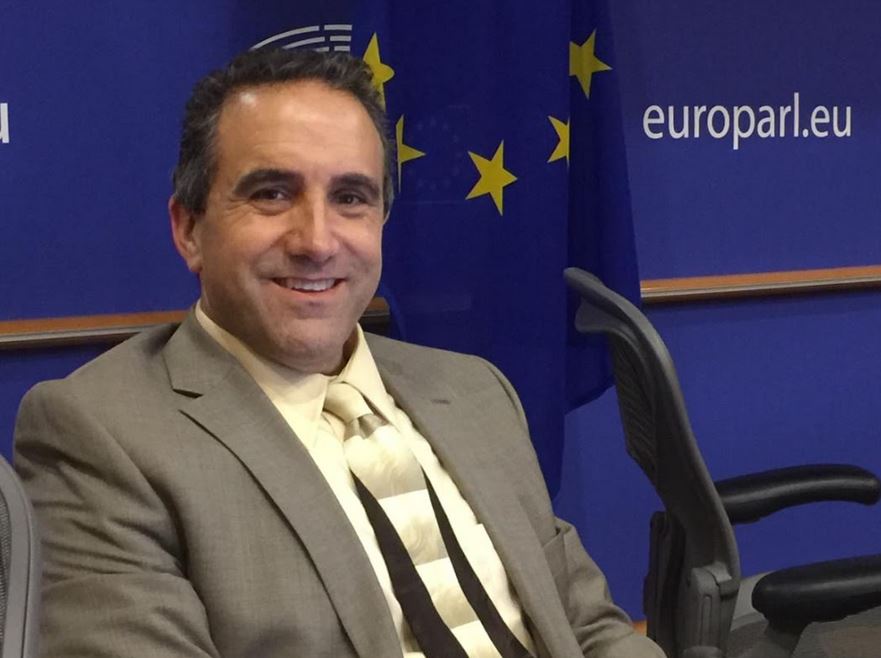NAS Urges Carbon Tax, Becomes Advocacy Group
The United States National Academy of Sciences (NAS) has turned itself into an advocacy group for public policy promotion, according to Seth Borenstein. He writes:
Ditching its past cautious tone, the nation’s top scientists urged the government Wednesday to take drastic action to raise the cost of using coal and oil to slow global warming.
The NAS specifically called for a carbon tax on fossil fuels or a cap-and-trade system for curbing greenhouse gas emissions, calling global warming an urgent threat.
The academy, which advises the government on scientific matters, said the nation needs to cut the pollution that causes global warming by about 57 percent to 83 percent by 2050. That’s close to President Obama’s goal.
“We really need to get started right away. It’s not opinion, it’s what the science tells you,” said Robert Fri, who chaired one of the three panels producing separate climate reports.
 This is the same kind of foolishness that led the Intergovernmental Panel on Climate Change to overreach in proposing climate policies, something that IPCC chairman Rajendra Pachauri recently admitted. Pachauri, an industrial engineer by training, “admitted it had been a mistake to give the impression, in many interviews, that he was advocating specific actions to cut emissions. Last year, he called for higher taxes on aviation and motoring, said people should eat less meat, and proposed that hotel rooms should have electricity meters to charge people extra for using air conditioning.”
This is the same kind of foolishness that led the Intergovernmental Panel on Climate Change to overreach in proposing climate policies, something that IPCC chairman Rajendra Pachauri recently admitted. Pachauri, an industrial engineer by training, “admitted it had been a mistake to give the impression, in many interviews, that he was advocating specific actions to cut emissions. Last year, he called for higher taxes on aviation and motoring, said people should eat less meat, and proposed that hotel rooms should have electricity meters to charge people extra for using air conditioning.”
Of course, Fri might not know any better. His curriculum vitaeat Resources for the Future specifies that he holds an MBA from Harvard University, and an unspecified Bachelor of Arts degree from Rice University, in Texas. It might be noted that most sciences award Bachelor of Science degrees, not Bachelor of Arts degrees.
One has to wonder at these governmentally anointed “scientists” who, while ostensibly bright people, are foolish enough to think that science can tell one what to do. For the record, scientific research can tell us how things work. It can even, in highly limited contexts, given remarkably high-quality data and an understanding of the causal elements of previous trends, tell us what is likely to happen over a certain time.
But science cannot tell us what to do. That decision lies in the realm of group decision-making, and involves a vast array of elements including individual values, group values, attitudes toward trade-offs, national interests, military interests, engineering feasibility, economic feasibility, political feasibility, and so on.
I think that part of the fallacious thinking that leads to these governmentally anointed “scientists” to speak as if science can tell us what to do is that a) they haven’t studied enough science to actually know what it is, and b) they confuse the instrument of scientific inquiry with the people who lead institutions of scientific research, such as themselves.
The NAS and IPCC can no more tell us what the right thing to do about climate change is than a doctor can tell you what the “right thing to do is” when you are diagnosed with an illness. They can tell you the range of options and give you whatever data might help you understand the ramifications of your choice, but the decision of what to do is something that only you can decide, in consultation with people you love, based on the values you hold and what you’re willing to accept for a given outcome.
Deciding what “the right thing to do is” is something that individuals have to decide for themselves. It can’t be decided for us by “science,” much less political appointees heading politicized scientific institutions that are virtually 100 percent dependent on government funding.


